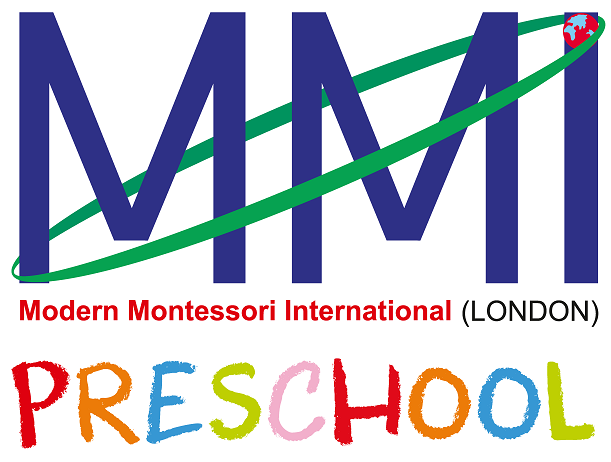As it turns out, many parents are now opting for this child-oriented approach since it concentrates on more than academic achievement and nurtures emotional, social, and practical growth as well. As awareness about early childhood education increases, Montessori is emerging as the choice of the world. So, let us find out how and why Montessori education is worthwhile, how it is different from conventional learning, and whether it is the best choice for your family’s values and aspirations.
Your child deserves the best start. Visit an MMI Montessori school near you and unlock their bright future —
👉[Contact Us Now]👈
Understanding the Montessori Pedagogy
According to Dr. Maria Montessori, this concept of Montessori is an approach that focuses on first-hand activity, self-directed learning, and collaborative play. Montessori classrooms differ from other classrooms because they enable the children to learn at their own pace. Teachers facilitate but do not lecture, and the children are the drivers of their own learning.
At MMI, students are encouraged to be inquiring, self-motivated, and accountable learners. In fact, the setting promotes both intellectual development and emotional maturity through purposefully prepared activities.
Key Benefits of Montessori Education
The advantages of Montessori education are wide-ranging and perpetual. Indeed, the benefits of Montessori education reach every aspect of a child’s life, from learning to social interaction and emotional well-being as it focuses on the Child-Centric learning approach.
Building self confidence and making them more Independent
Children flourish when trusted to make their own decisions and complete tasks independently.
- Freedom to choose work
Since children make choices about their activities, this promotes ownership of learning and keeps them highly motivated.
- Child-sized environment
The classroom is child-centered with Low shelves, age appropriate size of furniture, and accessible materials are thoughtfully designed to foster independence and build confidence.
- Respect for pace
Class Directress at MMI enable children to proceed at their own pace. They prompt them gently instead of rushing them forward.
Academic Development
Montessori students and the Montessori curriculum tend to establish strong scholastic skills through hands-on learning materials and real-life applications.
- Hands-on learning
Montessori classrooms employ materials that transform abstract concepts into tangible experiences. Consequently, such materials allow for increased understanding.
- Integrated curriculum
Children do not learn subjects in isolation, instead they are weaved & blended as math, language, science, and art together reflecting how learning happens in the real world.
- Self-correction tools
Learning materials guide children to recognize and correct errors. Thus, this develops high-powered problem-solving and self-independence.
At MMI, the Montessori curriculum is specifically designed to align with a child’s developmental stage. Thereby, this makes learning fun and productive.
Benefits of Montessori Education for Social and Emotional Development.
Beyond academics, Montessori schools promote respectful behavior and emotional health.
- Mix-age groups
Role models are the older children. Younger ones get supported and understand cooperation through actual contact.
- Tranquil setting
Montessori classrooms are peaceful and respectful. Children are instructed on how to resolve conflicts peacefully through discussion.
- Group Project
Group work teaches children to learn, share, and work together cooperatively. These are skills that will serve them for many years after school.
The positive, respectful environment at MMI therefore, makes children feel safe, heard, and understood.
Why Parents Are Choosing Montessori Beyond Traditional Learning?
Montessori education focuses on the development of the whole child—nurturing not just academic growth, but also emotional well-being, independence, and essential life skills.
Benefits of Montessori Education for Life Skills
Montessori educates children not only for school but also for life.
- Practical life activities
Children acquire everyday skills like pouring, sweeping, or tying their shoes. As a result, these develop concentration, coordination, and responsibility.
- Time management
Students learn to work independently. They set daily schedules and accomplish personal objectives.
- Decision-making
Children make dozens of small decisions every day. This, in turn, develops judgement and decision-making skills at a young age.
Parents searching for good Montessori schools near me mostly prefer MMI for its effective method of learning in real life. This shows you the real benefits of Montessori education in a child’s life.
Why Montessori Feels So Natural for Early Learning
Selecting the right way for your child’s early education is about more than test scores. For many families, Montessori school provides an experience that seems natural, supportive, and empowering.
- Daily Moments That Parents and Children Appreciate
Their daily moments illustrate why so many children feel secure, content, and eager in Montessori classrooms.
- Smooth transitions between activities
Smooth transitions between activities for children without jarring bells or abrupt halts allow them to concentrate and have a sense of control over their day.
- Fewer distractions in the classroom
Montessori classrooms are peaceful and uncluttered. Therefore, children are able to concentrate more and feel less overwhelmed.
- Respectful student-teacher communication
Teachers address children respectfully and patiently. This, in turn, instructs children to be polite and obedient.
- Freedom of movement in the classroom
Kids aren’t seated at desks. They may walk, stretch, or select a quiet area when needed, thus enhancing physical comfort and mental concentration.
- Learning is connected to genuine interests
If a kid is interested in dinosaurs, mathematical and reading exercises can be based on the subject. As a result, this maintains high motivation and personal learning.
These subtle but effective distinctions are some of the advantages of Montessori schooling, which may pass largely unnoticed initially but have a dramatic influence in the long run.
Finding the Right Fit for Your Child
Montessori education isn’t a fad. Instead, it’s an intentional approach that allows children to develop in all areas of life. But is it the best fit for your child?
Below are a few questions to ask when searching for good Montessori schools near me:
- Does the school adhere to authentic Montessori practices?
- Are instructors trained and certified in the Montessori approach?
- Are classrooms peaceful, well-structured, and filled with hands-on materials?
MMI is unique in filling all these requirements. Their qualified teachers, cozy classrooms, and disciplined Montessori program provide every young learner with everything they require.
Conclusion: Are Montessori Schools the Best Choice?
Montessori schools and montessori curriculum provide more than classroom learning. In fact, they assist children in developing confidence, people skills, and a passion for discovery. The benefits of Montessori education extend long after children exit the classroom.
Parents seeking excellent Montessori schools close to me quite frequently discover that MMI exceeds their greatest expectations. Through its compassionate staff, experimental learning, and serene classrooms, it provides an ideal foundation for any child’s path.
Come visit MMI to observe how your child can flourish in a Montessori setting designed around their needs and possibilities. Guide them towards growth, discovery, and brilliance from the start.
FAQ’s
Q1. Are Montessori schools better than traditional schools?
A: Montessori schools focus on independence, hands-on learning, and life skills, while traditional schools emphasize structured lessons. Many parents prefer Montessori for holistic growth.
Q2. What age is best to start Montessori education?
A: Children can join Montessori schools as early as 2.5 to 3 years, when their absorbent mind is most active for exploration and learning.
Q3. How do Montessori schools build confidence in children?
A: Montessori classrooms allow kids to choose activities, work at their own pace, and solve problems independently, which boosts confidence and self-esteem.
Q4. Is Montessori suitable for every child?
A: Yes. Montessori education adapts to different learning styles and needs, making it suitable for children with varied personalities and abilities.
Q5. Why do parents choose Montessori schools near me?
A: Parents choose Montessori because it nurtures creativity, independence, and life skills that extend beyond academics, preparing children for real-world success.


